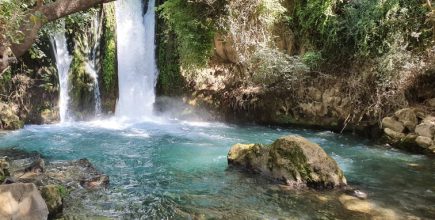Call us today!
+1-917-9055850
Magazine

General information
Deciding to travel to Israel is the first step towards a fabulous holiday.
The next step is to plan it properly.
Like every other destination, learning the background and important information is crucial for a smooth vacation, and there are many details about Israel that you should consider.
Israel is an exciting country on the Mediterranean coast, with a colorful heritage and welcoming people.
It is the only Jewish state in the predominantly Arab Middle East, and it enjoys a comfortable weather all year round.
The following article will provide you with essential information for your trip to Israel.
We hope you will find it helpful in your preparation for your once-in-a-lifetime vacation.
Power requirements
Israeli operates on 230 V voltage and 50 Hz frequency, which is common in most European countries.
If you come from the US or any other country that supports 100 V, you should get a 110/230 voltage converter.
Weather
The proximity to the Mediterranean coast and the subtropical ridge provide Israel with an overall comfortable climate throughout the year.
There are four seasons in Israel:Winter starts in December and lasts until late February.
It is usually accompanied by moderate rain and occasional hail.
It rarely snows in Israel, and when it does, it usually accumulates at altitudes above 900 meters.
During summer, which is from June to August, it can get hot and humid as the temperature rises to 32-42 °C (90-106 °F). Autumn – from September to November, and spring – from March to May, are typical transitional seasons with pleasant breezes and moderate temperatures.
Keep in mind that our small country is divided into several geographical areas, each with a slightly different sub-climate:
The mountainous areas of Galilee, Golan Heights and Jerusalem are usually cooler.
The Jordan and Jezreel Valleys and the Mediterranean and Red Sea coasts are hotter and have higher humidity.
The Dead Sea and Negev Desert areas are warm and arid.
Currency
Israeli currency is called “shekel.” It is abbreviated in two way: NIS (New Israeli Shekel) or ILS (Israeli Shekel).
There are coins of 1, 2, 5 and 10 shekels.
Coins of less than one shekel are called “agorot” – a 50 agorot coin is worth 0.5 shekel, and 10 agorot –0.1 shekel.
Banknotes used in Israel are 20, 50, 100, 200.
1 USD is around 3.5 ILS, and 1 EURO – around 4.2 shekels.
The above rates are approximate and depend on the daily exchange rate.
Tip: when shopping in tourist areas, we recommend using dollars or euros instead of shekels.
Make sure to check the currency of the marked prices before paying.
Most businesses do not use foreign money, because exchanging it is inconvenient.
When the change is smaller than 1 dollar, most places will give it in local currency.
The majority of businesses accept payment in cash and credit cards; traveler’s cheques are rarely accepted.
Money changers are found in many places; consider checking the daily rate before proceeding with the exchange.
The majority of ATMs have an English menu option.
Keep in mind that most ATMs will not provide foreign currency and you will have to withdraw shekels instead.
Kashrut
Kashrut is a set of Jewish dietary rules.
The majority of restaurants and hotels follow these rules, but in some areas, there are more non-kosher restaurants than others.
Kosher places will serve food the following way – meat and dairy are not mixed or served simultaneously.
Restaurants will serve either meat or dairy-based dishes. Hotels will serve a dairy-based breakfast with no meat, and dinner will include meat but no dairy.
Pork and seafood, except most fish types, are prohibited according to Kosher rules.
Keep in mind that religious cities like Jerusalem mostly feature Kosher places, while predominantly secular cities like Tel-Aviv have more non-kosher restaurants.
Sabbath – formal resting day
Shabbat, meaning Saturday, is the seventh day of the week and the Jewish resting day.
According to Jewish customs, the day starts at the sunset of the previous day, which is Friday, and lasts until Saturday’s sunset.
Shabbat is observed throughout most of Israel, which means that public transportation, shops, restaurants and some sites do not work on Shabbat.
Most hotels prepare food before Shabbat.
Food and beverage stations, where omelet, pizza and coffee are made per demand, do not function on Saturdays.
In buildings, there’s usually at least one elevator that operates on Shabbat and stops automatically on every floor, allowing religious tenants to get to their floor without pushing the buttons.
Areas that are predominantly Christian or Muslim often work on Shabbat, because their resting day is Sunday and Friday.
Keep in mind that cities like Tel Aviv have a larger secular population and many businesses are open on Shabbat.
Public transport
Israel’s transport system is well connected, and most locations are accessible via train, intercity buses, and taxis.
When arriving at Ben-Gurion Airport, there are several transport options:
Jerusalem has a light rail that operates on weekdays from 05:30 AM to 12:00 AM.
It currently has only 1 route that connects the most distant neighborhoods to the city center.
However, there are plans to open two more routes within a couple of years.
In addition, Tel Aviv light rail is under construction and should be ready by the end of 2022.
Vegan food
Israel’s prospering agriculture with innovative technologies that allow harvesting many crops, made our small country a vegan superpower.
With new vegan restaurants springing up like mushrooms, it is easy to find a delicious and nutritious plant-based meal.
Tel Aviv is regarded as the capital of veganism, with a wide range of eating options ranging from street food to upscale restaurants.
Last but not least, Israeli scientists recently invented plant-based meat, which competes with leading companies in the industry.
Tips
Gratuities are very common in Israel. All those providing service in the food and beverage, tourism and hotel industries will appreciate a tip for their work. The acceptable amount ranges from 10% to 14%, usually given in the form of cash and sometimes via credit card.
Wi-Fi
Nowadays, the absence of free and good quality WiFi is very unusual throughout Israeli hotels and restaurants, and it is also available on most public busses and trains.
Tap water
Drinking tap water in restaurants and hotels is safe.
Nevertheless, in some areas, it’s better to drink bottled water.
We recommend buying a reusable bottle that you can fill in the hotel’s dining room for free.
VAT refund
Most products in Israel have a 17% VAT.
Foreign visitors can get a VAT refund on receipts of over $100 at the airports and border-crossings.
Make sure to request a VAT form at the shop where you make the purchase.
To get a refund, you have to present the VAT form, receipt, passport, and products listed on the receipt.
Note that you cannot get a VAT refund on supermarket, pharmacy and restaurant purchases.
Security
Israel experienced many wars and terror attacks, and as a result, security is the country’s top priority.
Military service is mandatory for Israeli boys and girls; most hotels, malls, and transport hubs allow entrance only after a security check, and seeing police officers and soldiers on the streets is normal – all of these make Israel one of the safest countries in the world.
Modest clothes
With three predominant monotheistic faiths, a visit to Israel would be incomplete without a few religious sites.
Most shrines require adhering to strict rules of modesty:
Churches and synagogues require visitors to cover their shoulders and knees; however, women do not have to cover their heads and can wear pants.
Men are required to wear a head cover (kippah or yarmulke) upon entering synagogues.
When visiting mosques, female visitors have to cover their legs, arms and clavicle area.
Tight clothes are not allowed, and some mosques will ask women to cover from head to toe with a garment that they will provide.
Male visitors are required to wear long pants and cover their shoulders.
Official languages
Israeli population consists of 75% Jewish, 20% Arabs and 5% ethnic minorities.
The country’s official languages are Hebrew, Arabic and English.
Most Jewish families migrated to Israel within the last 3 to 4 generations, hence, may locals can speak another language, for example Russian, French or Spanish.
Nevertheless, do not expect the different communities to be fluent in all three official languages.
Most Jews do not speak Arabic, and in some cases, you might even find it hard to communicate in English.
Airports and border-crossings
As of 2019, there are five airports in Israel – two for international flights and three for domestic.
When arriving in Israel, most people will land in Ben-Gurion Airport, located between Tel Aviv and Jerusalem.
Israel has border crossings to Egypt and Jordan:
One crossing to Egypt, called Menachem Begin Crossing or Taba Border Crossing.
Three border crossings to Jordan:
the Jordan River Crossing (Sheikh Hussein Bridge), Allenby Bridge” (King Hussein Bridge), and Yitzhak Rabin Terminal (Wadi Araba Crossing).
Finally, if you are planning to arrive in Israel by sea, there are two main ports in the cities of Haifa and Ashdod.
Healthcare and medical services
Every large city has a medical center that serves the entire district in which it is located.
Every Israeli, by law, is a member of a health maintenance organization, which means that many of the medical services and treatments are government-supervised.
Israel evolved into one of the leading countries offering medical treatments to foreigners, and in 2020, the International Healthcare Research Center ranked it at number 8.
We strongly recommend acquiring health insurance before traveling – it will save you a fortune, if you’ll need any medical assistance.
Contact Us
Related articles
Tours and Activities

Museums in Israel
Israel is a very young country, just over 70 years old, but its rich history and vibrant heritage attract millions…

Hiking in Israel
Just like in the famous Hebrew song by Rami Kleinstein, Israel is a tiny country with many wonders. Snowy Mount…

Bird migration to Israel
Israel – a crossroad between 3 continents – is situated on one of the busiest bird migration routes in the…